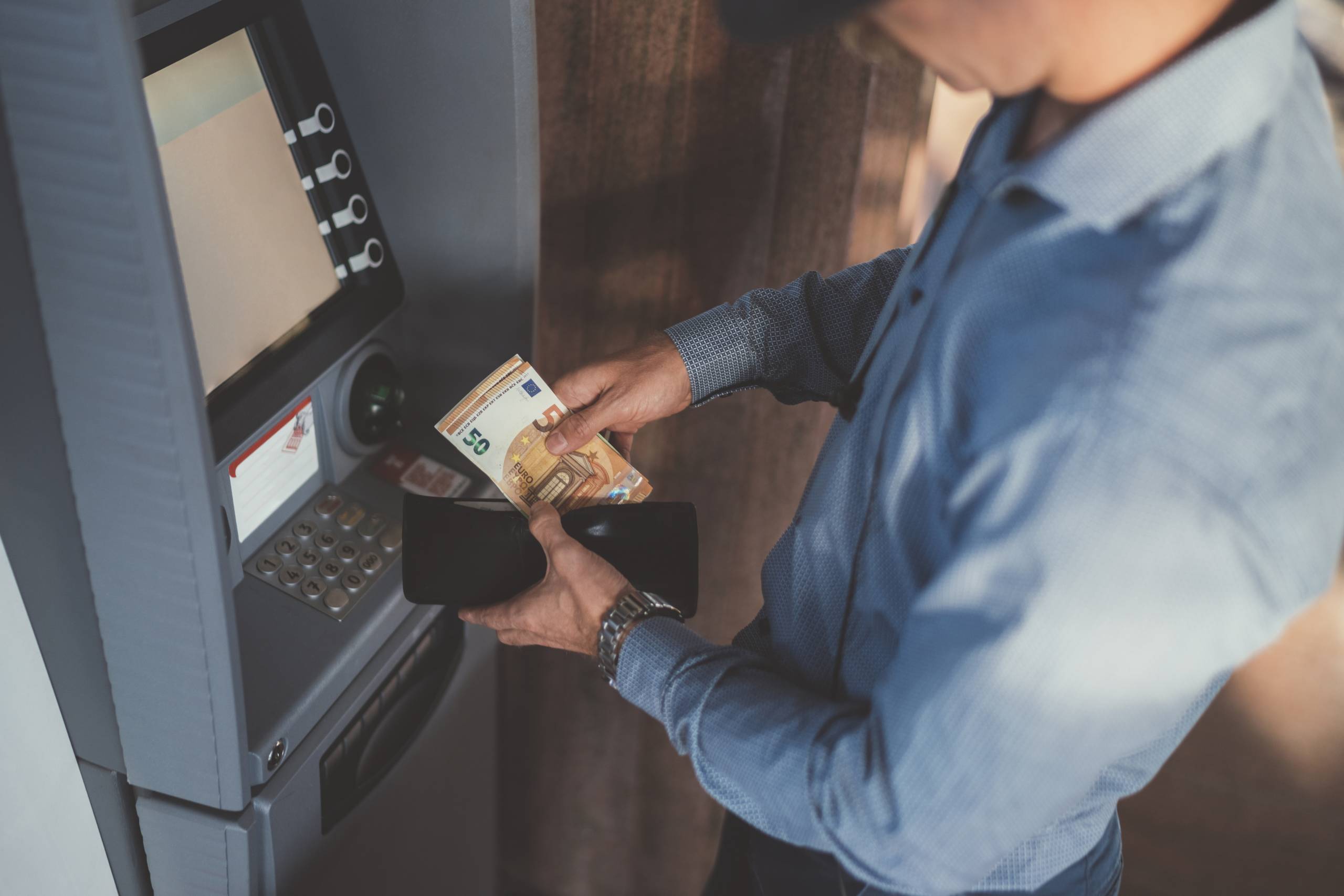When managing your investments, questions about accessing your cash are common. Can I take money out of my ISA? How much can I withdraw? Do I pay tax on the withdrawal? This guide covers the essential stocks and shares ISA withdrawal rules you need to know.
| Can you take money out of an ISA account? | Yes, but there are rules depending on the account type |
| What is the required time for withdrawing from a Stocks & Shares ISA? | 3 to 7 working days |
| What happens if I take money out of my ISA account? | It depends on the type of ISA |
| Are the rules for withdrawing money the same across all different types of ISAs? | No, each type of ISA has its own rules |
Individual Savings Accounts (ISAs) remain one of the most popular ways to save for the future in the UK. Their primary appeal lies in their tax efficiency: you do not pay tax on interest, dividends, or capital gains earned within the account (up to the annual allowance).
The three most common types are the Cash ISA, the Stocks and Shares ISA, and the Lifetime ISA. While a Cash ISA functions like a tax-free bank account, a Stocks and Shares ISA holds investments such as company shares, bonds, and funds. Because these accounts hold different assets, the mechanics of taking money out differ slightly.
ISA Allowances and Limits
The government sets a cap on how much you can contribute annually. For the 2025/26 tax year, the annual ISA allowance is £20,000. You can allocate this £20,000 into a single ISA or split it across different types (e.g., £10,000 in Cash and £10,000 in Stocks & Shares).
However, the Lifetime ISA has a lower contribution limit of £4,000 per tax year, which counts towards your overall £20,000 allowance.
Adults can also open an ISA for their kids, called a Junior ISA (JISA). The annual allowance for a JISA is £9,000 per tax year and can be held in Cash ISA, a Stocks and Shares ISA, or a mix of both. Withdrawing from a JISA is something only the child can initiate at age 18, and it can be used for anything. ISAs are a great way to plan your family’s financial future.v
Can you take money out of an ISA?
he short answer is yes. ISAs are designed to be flexible, allowing savers to access their funds when needed, such as during emergencies. Unlike a pension, a Stocks and Shares ISA usually does not lock your money away until a certain age.
However, how you withdraw and the implications of doing so depend on whether your ISA is “flexible” or “non-flexible.”
Understanding Flexible ISAs
If your provider offers a flexible ISA, you can withdraw cash and put it back in during the same tax year without reducing your annual allowance.
- Example: You have contributed £20,000 in the current tax year (using your full allowance). You later withdraw £5,000.
- Flexible ISA: You can deposit that £5,000 back into the account before the tax year ends (April 5th) without penalty.
- Non-Flexible ISA: You cannot pay that £5,000 back in, as you have already used your £20,000 allowance for the year.
It is vital to check with your provider if your account carries flexible status before making a withdrawal.
Withdrawal Rules by ISA Type
While the answer to “can I take money out” is generally yes, the stocks and shares ISA withdrawal rules differ from those of Cash ISAs or Lifetime ISAs.
1. Cash ISA Withdrawals
Taking money out of a Cash ISA is usually straightforward, but terms vary:
- Instant Access Cash ISA: Best for short-term goals. You can withdraw cash anytime without penalty.
- Fixed-Rate Cash ISA: These accounts lock your money away for a set period (e.g., 1 to 5 years) in exchange for a higher interest rate. Withdrawing early often incurs a penalty, such as the loss of 90 days’ interest.
2. Stocks and Shares ISA Withdrawals
A Stocks and Shares ISA withdrawal is flexible, but it is not instantaneous. Since your money is invested in assets (equities, bonds, funds), you cannot simply transfer cash immediately unless you hold uninvested cash in the portfolio.
- The Process: You must instruct your provider to sell specific assets to generate the cash you wish to withdraw.
- Settlement Period: Once shares are sold, there is a settlement period. It typically takes 3 to 7 working days for the trade to settle and the funds to clear into your bank account.
- Market Risk: Because the value of investments fluctuates, you may be forced to sell during a market dip, effectively “locking in” a loss. Conversely, leaving the money invested allows it to potentially recover from market volatility.
3. Junior ISA (JISA) Withdrawals
The rules for Junior ISAs are strict. Money cannot be withdrawn until the child reaches age 18. At that point, the account converts into a standard adult ISA, and the child gains full control over the funds. The only exceptions permitting early access are in cases of terminal illness or death.
4. Lifetime ISA (LISA) Withdrawals
The Lifetime ISA is designed specifically for buying a first home or funding retirement. Consequently, the withdrawal rules are stringent.
- Penalty-Free: You can withdraw tax-free if you are aged 60+, terminally ill, or buying your first home (up to £450,000).
- The 25% Penalty: If you withdraw for any other reason, you will pay a 25% government withdrawal charge. This recovers the government bonus plus a small penalty, meaning you could get back less than you paid in.
Why You Should Think Twice Before Withdrawing Money from Your ISA
Just because you can withdraw doesn’t always mean you should. One of the most powerful tools in investing is compound interest—earning interest on your interest (or returns on your returns).
How Compounding Works: Imagine a fund worth £10,000 growing at 8% per year.
- Year 1: Value grows to £10,800.
- Year 2: 6% growth applies to the new total (£10,800), adding £648, not just £600.
By making a withdrawal, you interrupt this compounding process. The remaining pot is smaller, meaning it generates less growth in subsequent years than it would have otherwise. If you are saving for a long-term goal like retirement, frequent withdrawals can significantly reduce your final pot size.
Do I Pay Tax on ISA Withdrawals?
No. This is one of the main benefits of the ISA wrapper.
- Tax-Free: You do not pay Income Tax or Capital Gains Tax on money taken out of an ISA.
- Reporting: You do not need to declare ISA withdrawals on your tax return.
This applies to Cash ISAs, Stocks and Shares ISAs, and Lifetime ISAs (provided LISA withdrawals are for qualifying reasons
How Long Does It Take to Withdraw Money?
- Cash ISA: usually 1–2 working days.
- Stocks and Shares ISA: usually 3–7 working days.
The delay in Stocks and Shares ISAs is due to the “settlement” process. When you sell a fund or share, the transaction must be processed by the market before the cash is released to your provider, who then transfers it to you.
As a bottom line, ISAs in general – and Stocks and Shares ISAs, in particular – are excellent ways to save for the future. They offer several tax benefits and are highly flexible. Withdrawing money from ISAs, including Stocks and Shares ISAs, is free of tax in terms of profits, interest, or dividend income. A stocks and shares ISA withdrawal made from a flexible ISA that is subsequently put back into the account within the same tax year will retain all its tax benefits.
We recommend consulting a financial advisor or firm authorised and regulated by the financial conduct authority to take full advantage of the benefits of ISAs and fully understand the ISA withdrawal money process.
FAQ
Yes, you can withdraw funds from your stocks and shares ISA. A stock and shares ISA withdrawal is an option you can make at any time.
There is no limit on tax-free withdrawals. Since ISAs are tax wrappers, you can withdraw the entire balance without paying Capital Gains or Income Tax.
For standard Stocks and Shares ISAs and easy-access Cash ISAs, there is usually no penalty. However, Fixed-Rate Cash ISAs may charge an interest penalty for early closure, and specific non-qualified withdrawals from a Lifetime ISA incur a 25% government charge.
No, all ISAs are tax wrappers, so you do not have to pay tax on ISA withdrawals.
No, ISAs are individual accounts. You cannot transfer an ISA directly to another person, including a spouse or child. You would need to withdraw the cash (losing the tax wrapper status) and gift the money to them.
*As with all investing, financial instruments involve inherent risks, including loss of capital, market fluctuations and liquidity risk. Past performance is no guarantee of future results. It is important to consider your risk tolerance and investment objectives before proceeding.





